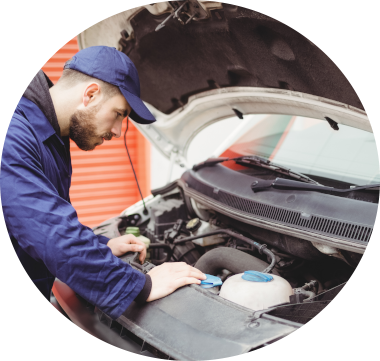All Categories
Featured

[/image]

Your automobile's engine is the heart of your vehicle, and keeping it in leading condition is important for optimal performance and longevity. Regular engine tune-ups are a wonderful means to preserve your auto's health and wellness, boost fuel effectiveness, and stay clear of expensive fixings in the future. Whether you're a cars and truck enthusiast or a person that simply wishes to maintain their vehicle running smoothly, these engine tune-up pointers will certainly help you get one of the most out of your automobile.
- Change Glow Plugs. Trigger plugs play a vital duty in beginning your engine and guaranteeing smooth burning. Gradually, trigger plugs can come to be filthy or put on out, bring about misfires, minimized gas effectiveness, and rough idling.
Throughout an engine tune-up, inspect and replace your stimulate plugs if necessary. A lot of automobiles require brand-new spark plugs every 30,000 to 100,000 miles, depending upon the kind. Regularly changing ignition system ensures proper ignition and optimal engine performance.
- Inspect and Tidy the Air Filter. The air filter protects against dirt, dust, and debris from entering your engine. A blocked or dirty air filter limits airflow, creating your engine to function more difficult and burn more fuel.
Inspect your air filter throughout a tune-up and change it if it's unclean. In messy settings or areas with heavy air pollution, you may require to alter the air filter extra frequently. A clean air filter can enhance gas effectiveness and prolong the life of your engine.
- Check and Change Belts and Hoses. Belts and hoses are essential for various engine features, such as powering the alternator, water pump, and air conditioning system. Over time, these components can split, fray, or break, possibly bring about breakdowns.
Throughout a tune-up, check belts and tubes for signs of wear and replace them if needed. Replacing these components proactively can conserve you from expensive fixings and prevent unforeseen failures.
- Tidy the Fuel System. Your fuel system, including the fuel injectors and gas lines, can gather dust and carbon deposits gradually, decreasing engine effectiveness. Cleansing the gas system during a tune-up assists boost efficiency and fuel economic situation.
You can use a fuel system cleaner or have a specialist mechanic perform a more thorough cleansing. This step is specifically important for older cars or autos that regularly drive in stop-and-go traffic.
- Inspect the Battery and Charging System. A healthy and balanced battery is necessary for beginning your engine and powering electric parts. Throughout a tune-up, check the battery terminals for deterioration and make certain the links are limited.
Examine the battery's voltage and change it if it reveals indicators of weak point. Additionally, have the alternator and billing system tested to guarantee your battery remains billed throughout procedure.
- Adjustment the Engine Oil and Oil Filter. Oil adjustments are an essential component of engine upkeep. Engine oil lubricates moving parts, lowers friction, and helps regulate engine temperature. With time, oil becomes contaminated and sheds its efficiency.
During a tune-up, change the engine oil and oil filter to keep your engine running efficiently. Follow your lorry's manufacturer recommendations for oil type and change intervals.
- Inspect the Cooling System. The air conditioning system stops your engine from overheating. With time, coolant can degrade or end up being polluted, minimizing its effectiveness.
Inspect the coolant level and condition throughout a tune-up, and flush and change it if needed. Check the radiator, water pump, and pipes for leaks or damage. A well-maintained air conditioning system aids your engine operate at the best temperature level and stops getting too hot.
- Evaluate the Ignition System. A malfunctioning ignition system can cause beginning issues and minimized engine performance. During a tune-up, check the ignition coils, distributor cap, and rotor (if applicable) Change any kind of components that reveal indicators of wear or damages to make sure smooth and trustworthy engine procedure.
- Listen for Uncommon Noises. During a tune-up, take the chance to pay attention for any uncommon engine noises, such as knocking, ticking, or hissing. These noises can indicate underlying concerns, such as shutoff problems, loose parts, or exhaust leaks. Attending to these issues early can protect against much more comprehensive damages.
- Use High Quality Parts and Fluids. When doing an engine tune-up, constantly make use of high-quality components and liquids that meet your car manufacturer's requirements. Low-cost or incorrect elements can endanger your engine's performance and reliability.
Conclusion: A Well-Tuned Engine is Secret to Durability. Regular engine tune-ups are necessary for preserving your auto's efficiency, effectiveness, and dependability. By replacing used parts, cleaning up essential systems, and attending to possible problems, you can keep your engine running smoothly for years to come. Whether you're doing it on your own or depending on a relied on technician, spending in tune-ups is a smart means to safeguard your car and enjoy a safer, smoother adventure.
Latest Posts
Discover Exclusive Auto Repair Specials in Chicago at Montclare Auto Repair
Uncover Reduce Expenses on Car Maintenance with Montclare Auto Repair’s Limited-Time Deals
How Regular Vehicle Maintenance at Montclare Auto Repair Saves You Money
More
Latest Posts
Discover Exclusive Auto Repair Specials in Chicago at Montclare Auto Repair
Uncover Reduce Expenses on Car Maintenance with Montclare Auto Repair’s Limited-Time Deals
How Regular Vehicle Maintenance at Montclare Auto Repair Saves You Money